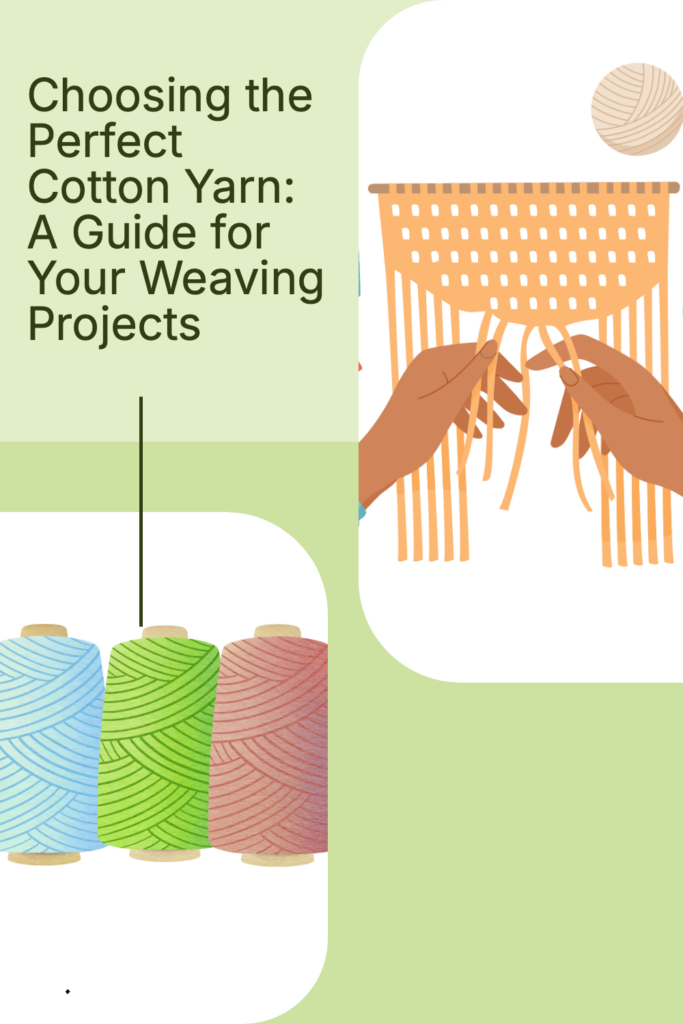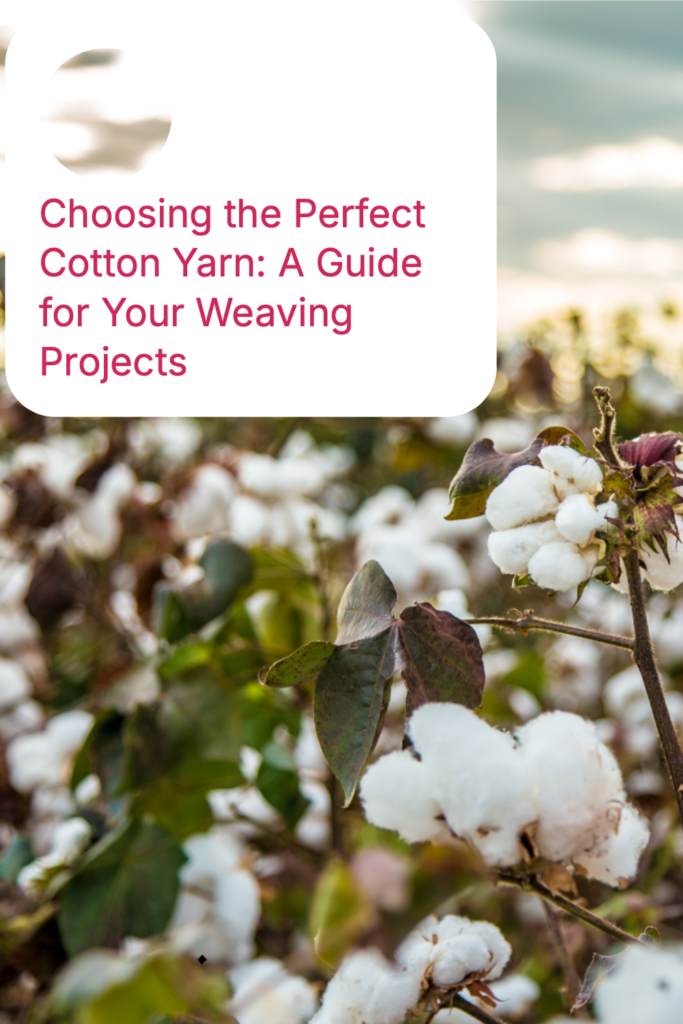Choosing the Best Cotton for Your Weaving Projects: A Guide for Beginners and Beyond
Cotton is one of the most versatile and commonly used fibers in weaving projects. Whether you’re creating hand or kitchen towels, table runners, or baby blankets, the right cotton can make a world of difference in your final result. In this guide, we’ll explore various cotton yarns, from locally sourced options to globally available alternatives, with practical tips to help you choose the best yarn for your weaving needs.
Why I Love Bendigo Woollen Mills Cotton
My go-to cotton is Bendigo Woollen Mills cotton. Here’s why it’s such a fantastic option:
- Locally Made: As an Australian, I love supporting local manufacturers.
- Economical: Bendigo cotton comes in large 200g balls, making it affordable for bigger projects.
- Versatile Weight Options: Available in 4-ply (fingering weight), 8-ply (DK weight), and 10-ply (aran weight).
- Color Variety: Bendigo offers a vast range of colors, with new seasonal blends frequently added.
I’ve used Bendigo cotton in many of my weaving projects, including:
- Log Cabin Table Runner (available as a digital download and online class).
- Wash Your Hands Towels (a free project).
- Pinwheel Table Topper (rigid heddle loom class).
- Lux Hand Towels (digital download).
- Double-Width Baby Blanket (online class).

Alternatives for Non-Australian Weavers
If you’re outside Australia, shipping Bendigo cotton may not be cost-effective. Thankfully, there are excellent alternatives:
1. I Love This Cotton (Hobby Lobby)
- Weight: DK.
- Pros: Affordable, widely available in the U.S., and comes in large balls with a great color selection.
- Best For: Towels, dishcloths, and lightweight projects.
2. Sugar ‘n Cream (Lily Yarn)
- Weight: Aran.
- Pros: Durable yet soft, perfect for hardwearing items like placemats and hand towels.
- Best For: Place mats (used in my Woe to Go! Beginners Class), dishcloths, and hand towels.
- Tip: Works best with a 7.5-dent heddle.
3. Knit Picks Dishie
- Weight: DK.
- Pros: Hardwearing but soft, suitable for kitchen use or even baby blankets.
- Best For: Baby blankets, dishcloths, and towels.
4. Lion Brand 24/7 Cotton
- Weight: DK.
- Pros: Readily available in most countries, affordable, and versatile.
- Best For: General weaving projects.
5. Yarn and Colors Epic Cotton
- Weight: Slightly heavier than DK.
- Pros: Exceptionally soft, available in unique pastel shades.
- Best For: Baby blankets, small-scale projects like dishcloths.
- Consideration: Comes in smaller 50g balls, which can increase the cost for larger projects.
6. Maurice Brassard 8/8 Cotton
- Weight: Thick (equivalent to aran).
- Pros: Durable and excellent for projects requiring structure.
- Best For: Table runners, cushion covers, or experimental projects.

Choosing the Right Cotton for Your Project
When selecting cotton for your project, consider:
- Thickness: Thicker cottons are great for hand towels and placemats but may not be suitable for tea towels or other lightweight items.
- Softness: Some cottons, like Bendigo and Epic, are soft and lofty, while others, like Sugar ‘n Cream, are sturdier.
- Cost and Availability: Opt for locally available options where possible to save on shipping.
Projects That Pair Perfectly with Thicker Cotton
Thicker knitting-style cottons work well for:
- Hand Towels: Like my Wash Your Hands Towels or Lux Hand Towels.
- Table Runners and Placemats: Add structure and durability to your tableware.
- Dishcloths: Try my Members-Only Dishcloth Class at the Online Weaving School.
However, these thicker yarns aren’t ideal for:
- Tea Towels: Thicker cotton tends to leave lint on dishes and isn’t as absorbent for drying.
- Delicate Fabrics: Consider thinner cottons like 8/2 weaving yarns for finer projects.
Check out this video to see some of the mentioned yarns in action ⤵️
*This post contains affiliate links. For more information please see my disclosure policy.
Exploring different cotton yarns can open up endless possibilities for your weaving. If you’re unsure, start with small samplers or projects like dishcloths to test how a particular cotton works on your loom. For more guidance, visit my Online Weaving School or check out my project downloads in my Design Store.
Until next time…
Happy weaving! 😊
